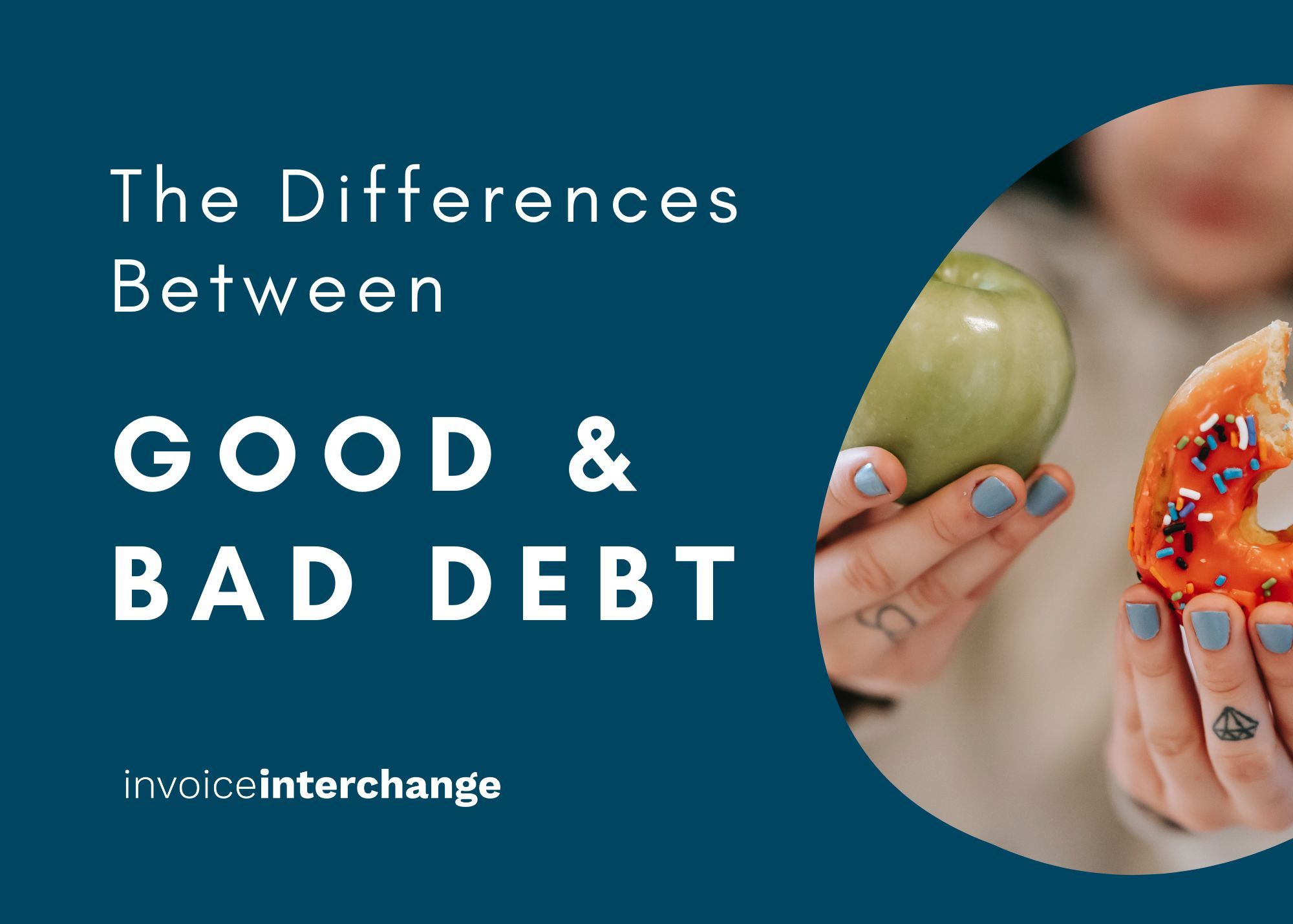
Do You Know Whether Your Business Has Good Debt or Bad Debt?
Taking debt funding into your company will come into consideration at some point in your business journey to help fuel growth. However, it is important to know that not all debts are equal, some are good, and some are not so good as some types of debt may impact your ability to obtain future financing. Let us explore more.
What is considered good debt?
In general, any debt that increases your business net worth or future net worth is considered good debt. Debt that is used to finance something that will offer a positive return on investment or has long-term value is worth considering. A simple example would be a mortgage where you take out a loan to purchase a house. This will increase your net worth over time.
Additionally, if the debt helps you generate income, then that is also considered a good debt. Using the mortgage example again, if you could generate rental income from it then it might be worth getting into debt.
From a commercial standpoint, any debt that can offer your business a longer runway, and increase sales or revenue whilst not jeopardising your business is generally considered good debt.
Business Debt Examples
Commercial mortgages
A commercial mortgage is when you take out a loan to purchase a commercial property that will allow you to own the land and/or building. It is widely viewed as a form of good debt as it gives your business a positive net worth, providing that it is an affordable borrowing that does not put a strain on cash flow.
Commercial vehicle loans
Commercial vehicles include motorcycles, cars, vans, trucks, heavy vehicles, etc. Businesses can opt to acquire a commercial vehicle loan to help with the purchase rather than put up a large initial outlay upfront.
A commercial vehicle loan is often seen as good debt because these vehicles can help your business grow by supporting operational and sales activities like delivering goods, performing tasks in a more efficient way, offering service to more customers, allowing your team to meet clients, etc. This all leads to increasing in business net worth.
Government shared-risk loan
A government shared-risk loan is an affordable business loan where the government co-shares default risks with the financial institution. For example, the Enterprise Financing Scheme (EFS) allows businesses to obtain finance like working capital loans, fixed asset loans, etc at a low-interest rate. The EFS scheme was rolled out to help businesses that were impacted by the COVID-19 pandemic.
So, what is bad debt?
Bad debt is any borrowing that does not increase your company’s net worth and financial profile. It is generally used to fund an asset that depreciates over time that does not support revenue-generating activities or to fund a certain image or lifestyle.
Examples of bad debt are any high short-term interest loans, credit cards, and loans to your employees. It is also any debt that severely affects your business cash flow, including debt that your business is unable to pay back.
What if I do not want to take on any debt?
If your business needs a financing tool that helps better manage cash flow by bridging the gap between paying suppliers and receiving payments from your customers, then there is a good option.
Invoice finance is a facility that allows you to gain access to funding without adding any debt to your business. Invoice finance simply converts your outstanding customer invoices into cash as and when needed. In another word, your business is merely converting accounts receivable into cash at the bank (from a current asset to another current asset).
Related Articles

How to Spot a Good Lender: Your Guide to Financial Well-Being

Finding the Right Fit: Matching Your SME with the Ideal Financing Option
